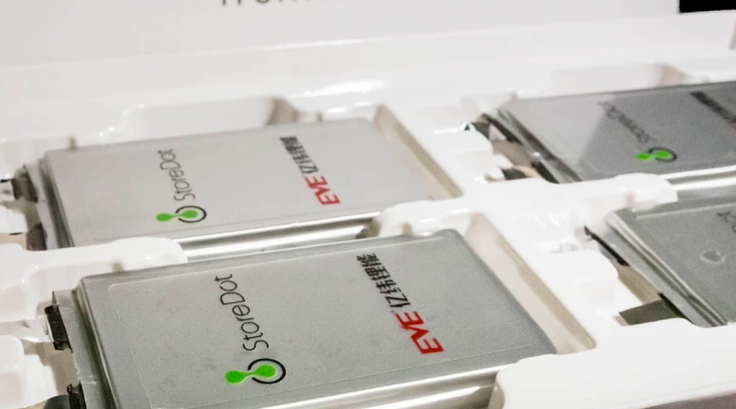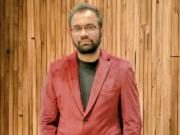Israeli company StoreDot is ready to revolutionize the global electronic vehicle market by its latest offering, the world's first car battery which will be fully charged in record five minutes.
The 2012 ultra-fast recharge specialist startup has developed a first-generation lithium-ion battery can, on a busy working day, challenge the filling time of a standard car at the pump.
StoreDot founder Doron Myersdorf claims that 'range anxiety' that most the electric vehicle experience of getting stuck on the highway shall be potentially resolved by this five minute's fast charging. With this new fast charging technology, recharging an electric car for hours shall become a thing of the past.
Who Are The Investors? What About The Collaborations?
Myersdorf's company is based in Herzliya, near Tel Aviv, and has already raised almost $130 million till date from some its major investors like German automobile manufacturer Daimler, the UK's British Petroleum and the electronic giants Samsung and electronics manufacturer TDK to fuel this ambitious project.
The company has already tested the ultra-fast charging battery on phones, drones and scooters. In June last year with collaboration with BP Ventures, the venture arm of the British multinational oil and gas firm BP plc, the startup achieved a new height when it successfully charged a two-wheeled electric vehicle in just five minutes. BP ventures have invested $20 million into the startup.
The successes of these tests have inspired the makers to broaden their horizon and test the batteries on bigger electric vehicles.

How Did The 5-Minutes-Story Start?
In 2019, John Goodenough of the US, Britain's Stanley Whittingham and Japan's Akira Yoshino was awarded with Nobel Chemistry Prize for their invention of lithium-ion batteries. The Royal Swedish Academy of Sciences said: "This lightweight, rechargeable and powerful battery is now used in everything from mobile phones to laptops and electric vehicles." But this original Nobel winning design was not meant for speed charging. Thus, it became a considerably impossible task for StoreDot to design a lithium-ion battery to charge in minutes.
StoreDot's engineer switched the original graphite in the battery's negative anode with silicon to upgrade it to extreme fast charging capacity. These batteries are assembled in a laboratory containing large sealed boxes to keep oxygen out. The company is presently manufacturing 100 batteries a week and sending them to different companies to use them in their products on trial.
The company has used nanomaterials and organic and inorganic compounds to develop lithium ion-based battery technology. This technology enables the battery to ultra-fast charging for various markets.
The lithium-ion battery has been heartily praised by the Nobel jury for its ability to "store significant amounts of energy from solar and wind power, making possible a fossil fuel-free society".
Commercial Feasibility And Practical Application Of The Technology
At present this unique invention is not completely ready for commercial uses. These ultra-fast charging batteries will require higher-power chargers that the present ones. Only when the present power charging stations are majorly upgraded, they this unique innovation would be ready for practical and public usage and such upgrade shall cost almost between $1,500 and $10,000 depending on its capacity.
Electric vehicles are a huge step towards the control of climate crisis through its almost zero consumption of fuel and zero emission. But they come with range anxiety for its drivers whether the car would break down in the middle of a busy high way and fully charging a battery of a car can take hours. The present technology by the Israeli start-up will definitely solve the problem but for now it seems yet to take years before it becomes a regular factor.

Challenges To Be Addressed
Recycling lithium-ion batteries poses another challenge. Each of these batteries has a lifespan of between 3,000 and 3,500 charges and there is a ample need for a recycling system similar to lead-acid batteries. Extraction and recycling of lithium can cause a huge ecological, political and economic challenge which would be difficult to overcome with technology.
Now whether to take climate crisis control one step forward with these super-fast charging batteries or impose a threat on it by extraction or recycling of lithium, is a challenge for the scientists of the company.
What The Future Holds
The company is eyeing a mass roll-out by 2025 if its search for right strategic partners has a fruitful outcome as mass production depends on infrastructure. Myersdorf said: "It's not only a laboratory experiment, it's a mass production product that is scalable. We've really focused on where the holy grail is — five-minute charging of electric vehicles."
The StoreDot CEO added: "We are proud to make these samples available, but today's milestone is just the beginning. We're on the cusp of achieving a revolution in the electric vehicle charging experience that will remove the critical barrier to mass adoption of electric vehicles."
Once considered impossible, a five-minute charging lithium-ion battery is now present and ready for use. The company is now ready to release engineering samples from a mass production line which shows its commercial feasibility.
Prof. Chao-Yang Wang of the Battery and Energy Storage Technology Center at Pennsylvania State University in the US told The Guardian: "I think such fast-charging batteries will be available to the mass market in three years. They will not be more expensive; in fact, they allow automakers to downsize the onboard battery while still eliminating range anxiety, thereby dramatically cutting down the vehicle battery cost."
David Watson, CEO of EV-charging company Ohme Technologies U.K. Ltd, has said: "This is a huge positive to the industry, making rapid charging on the go more convenient and reducing a huge barrier to adoption. But these benefits will take a while to come on stream."
Another California based startup Ample is carving its way in the same electric vehicle market by offering battering swapping technology minus the hassle of charging the battery. Now this new StoreDot's ultra-fast charging technology is offering a new dimension in the same sphere. The sustainability of both the technology is yet to be found out.









